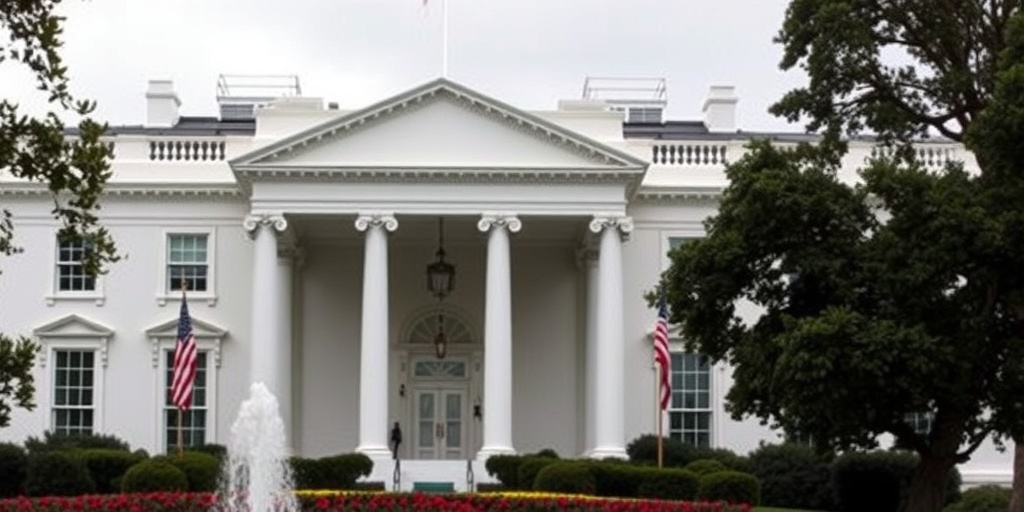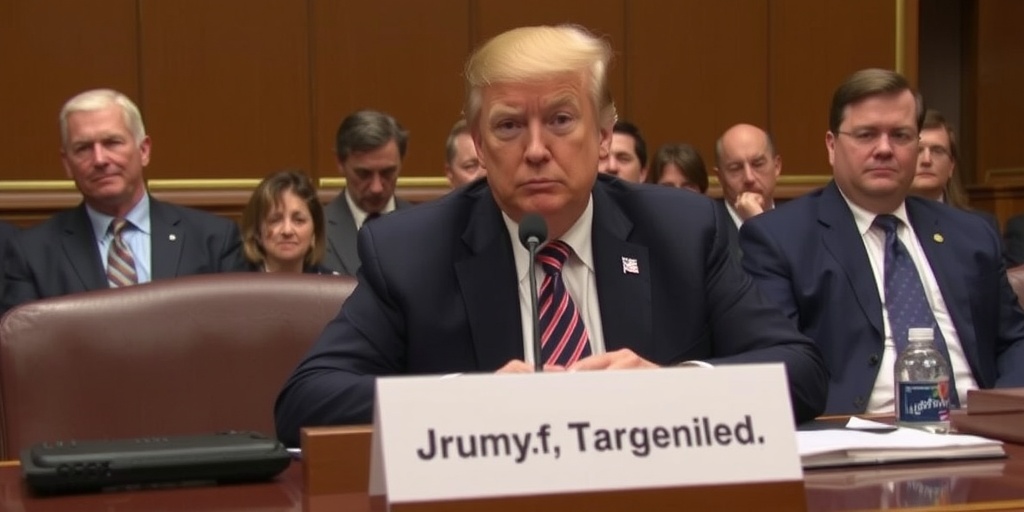Now Reading: Trump White House Ignores Journalists Who Use Pronouns
-
01
Trump White House Ignores Journalists Who Use Pronouns
Trump White House Ignores Journalists Who Use Pronouns

Title: Trump Administration’s Stance on Preferred Pronouns Sparks Controversy
In a move that has drawn widespread attention and criticism, the Trump administration has officially prohibited federal employees from including their preferred pronouns in email signatures. The administration characterizes this practice as a reflection of a misguided “gender ideology.” This decision aligns with a broader strategy that extends to how White House officials are interacting with journalists.
Recently, senior press aides within the Trump administration have responded to reporters’ inquiries by refusing to engage with those who include identifying pronouns in their email signatures. On at least three occasions, such responses have been documented, highlighting a shift in the White House’s approach to press relations. Karoline Leavitt, the White House press secretary, informed a New York Times reporter that the office does not respond to reporters who list pronouns in their bios. This assertion came during an inquiry regarding the potential closure of a renowned climate research observatory.
In a similar vein, Katie Miller, a senior adviser at the Department of Government Efficiency, declined to answer questions from another Times reporter seeking clarification on the legal status of the department’s public records. Miller firmly communicated that her decision is rooted in a stated policy: “As a matter of policy, I don’t respond to people who use pronouns in their signatures as it shows they ignore scientific realities and therefore ignore facts.” She further emphasized that this policy applies universally to all reporters who adopt such practices.
The use of pronouns, including “he/him” or “they/them,” in email signatures and social media profiles is intended to clarify gender identity while promoting inclusivity and solidarity for transgender and nonbinary individuals. This trend has become increasingly prevalent in recent years, aiming to foster an environment of acceptance and respect. However, conservative politicians and commentators have criticized the practice, deeming it an illustration of rampant woke-ism. They argue that it represents a push to normalize the notion that there exists a spectrum of genders beyond the traditional male and female classification—an idea that Miller alluded to when referring to “scientific realities.”
When sought for clarification, administration officials did not affirm whether this approach constituted an official policy within the White House press office, nor did they specify when such practices began. Leavitt stated, “Any reporter who chooses to put their preferred pronouns in their bio clearly does not care about biological reality or truth and therefore cannot be trusted to write an honest story.” This sentiment underscores the administration’s commitment to challenging what they deem as gender-related “ideologies.”
Steven Cheung, the White House communications director, also expressed his views in an email, suggesting that major media outlets like The New York Times should prioritize truthful reporting over their perceived obsession with pronouns. Cheung’s remarks further reflect the administration’s dismissive attitude towards the inclusion of pronouns in communications.
Beyond The Times, it appears that the practice of including pronouns in email signatures is spreading among journalists in various media outlets. Matt Berg, a reporter for Crooked Media—known for its “Pod Save America” podcasts—conducted an experiment in mid-February. After discussing the issue with a colleague who received a similar response from Miller, Berg added the pronouns “(he/him)” to his email query about the administration’s Ukraine policy. His response nearly mirrored the ones reported by other journalists, reinforcing the notion of a coordinated response strategy from the administration.
Transgender rights have been a focal point of the Trump administration’s policy agenda. On his first day in office, President Trump signed an executive order declaring that there are only two sexes: male and female. Since then, the administration has implemented several policies aimed at restricting the rights of transgender individuals, including barring them from serving in the military, prohibiting transgender women and girls from participating in women’s sports, and rolling back protections established under various anti-discrimination laws. Many of these actions have faced legal challenges, intensifying the debate around transgender rights in the U.S.
In light of the administration’s actions, a spokesperson for The New York Times voiced concerns about the implications of avoiding tough questions: “Evading tough questions certainly runs counter to transparent engagement with a free and independent press reporting. But refusing to answer a straightforward request to explain the administration’s policies because of the formatting of an email signature is both a concerning and baffling choice, especially from the highest press office in the U.S. government.”
As the debate over gender identity and the implications of preferred pronouns continues, the administration’s approach raises questions about its commitment to engaging with journalists and the wider public on issues of legitimacy, transparency, and inclusivity. The administration’s stance appears to be emblematic of a deeper ideological battle over gender and identity that is playing out in American politics today.
Stay Informed With the Latest & Most Important News
Previous Post
Next Post
-
 01New technology breakthrough has everyone talking right now
01New technology breakthrough has everyone talking right now -
 02Unbelievable life hack everyone needs to try today
02Unbelievable life hack everyone needs to try today -
 03Fascinating discovery found buried deep beneath the ocean
03Fascinating discovery found buried deep beneath the ocean -
 04Man invents genius device that solves everyday problems
04Man invents genius device that solves everyday problems -
 05Shocking discovery that changes what we know forever
05Shocking discovery that changes what we know forever -
 06Internet goes wild over celebrity’s unexpected fashion choice
06Internet goes wild over celebrity’s unexpected fashion choice -
 07Rare animal sighting stuns scientists and wildlife lovers
07Rare animal sighting stuns scientists and wildlife lovers





















